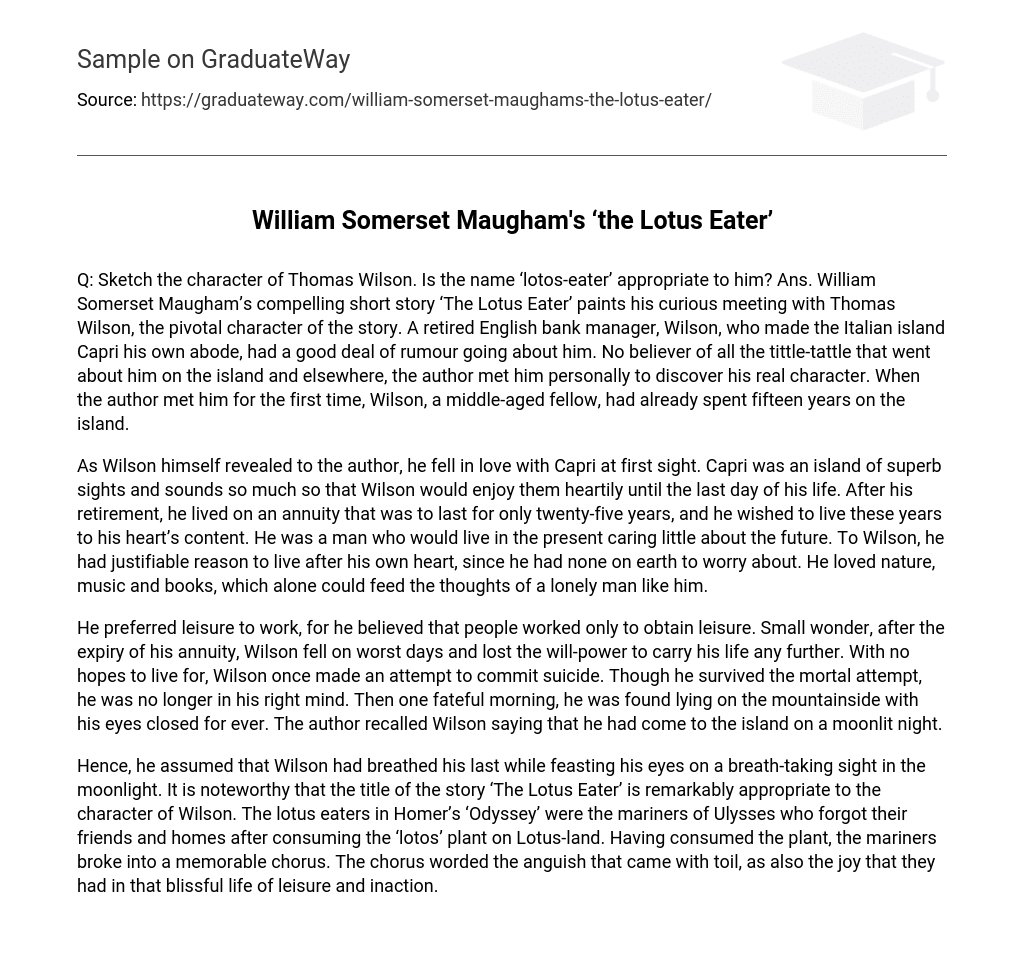In William Somerset Maugham’s short story ‘The Lotus Eater’, the character of Thomas Wilson is depicted through his encounter with the narrator. Wilson, an English bank manager who had retired, had chosen to live on the Italian island Capri and was subject to various speculations. However, disregarding these rumors, the author personally met him in order to ascertain his actual personality. Having already spent fifteen years on the island, Wilson was portrayed as a middle-aged individual.
Wilson expressed to the author his immediate infatuation with Capri upon first laying eyes on it. He found the location to be incredibly stunning and relished in its auditory offerings until his final day. Following retirement, Wilson relied on a twenty-five year annuity and sought to fully embrace this period of time. Rather than fretting over what lay ahead, he focused on living in the present moment. With no familial responsibilities weighing him down, he believed it was permissible to pursue his own desires. In instances of introspection, nature, music, and literature provided him solace.
Wilson had a preference for leisure over work, as he believed that people only worked in order to have leisure time. After his annuity expired, Wilson faced difficult times and lost the motivation to continue living. Feeling hopeless, Wilson once attempted suicide. Although he survived, his mental state was severely affected. Eventually, he was discovered on a mountainside one morning, lifeless with his eyes closed. The author remembered Wilson mentioning that he had arrived on the island during a moonlit night.
Therefore, he believed that Wilson had died while enjoying a magnificent sight in the moonlight. It is interesting to note that the title of the story ‘The Lotus Eater’ suits Wilson’s character perfectly. The lotus eaters in Homer’s ‘Odyssey’ were Ulysses’ sailors who forgot about their loved ones and homes after eating the ‘lotos’ plant in Lotus-land. After consuming the plant, the sailors sang a memorable chorus expressing their pain and the happiness they found in a life of leisure and inactivity.





